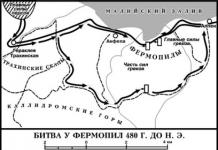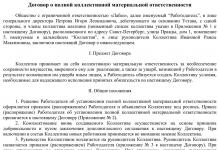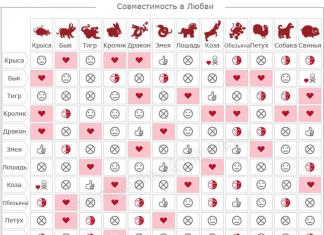This story happened in the 1980s, when Muscovite Valentina Vesnina was still a child. After everything that happened, Vesnina is sure that she knows which way the souls of the departed leave our world.
“They go into mirrors! And they get to the next world through a mirror tunnel leading there,” the woman assures.
“You, of course, have heard about the ancient folk custom of covering all the mirrors in the house where the deceased appeared with sheets and rags,” Vesnina continues. “Do you know where it came from, this custom?”
“My parents are communists, which means they are atheists. They lived and still live on the same state farm near Moscow. They treat any folk beliefs and superstitions with great irony.
When my grandmother died, they did not hang a sheet over the mirror of the trellis that stood in the hut. I clearly remember that the old lady neighbor angrily reprimanded them for this. But they ignored her reproaches. The coffin with the body of the deceased stood on the table directly opposite the trellis with a tall narrow mirror.
When my grandmother died, I was 8 years old. However, I remember very well all the terrible horror that happened in our house on the day of her funeral. Our fellow villagers came to say goodbye to the deceased. The house was full of people. And suddenly one of the women who came screamed in a terrible voice, pointing with her hand at the mirror of the trellis.
I looked where she was pointing. And I was stunned! I see that the mirror seems to be covered with a light milky haze. And in the haze, my late grandmother retreats into the mirror, into its, so to speak, “depth.”
I saw her from the back. The grandmother was wearing the same dress in which she was lying at that moment in the coffin, which stood on the table opposite the trellis...
You can't even imagine what started in our house! Everyone who was in it saw the ghost of a deceased woman retreating into the mirror, as if into some kind of tunnel leading. Where? I’m sure to the next world... Here’s an explanation for the folk custom of hanging mirrors in a house where someone died and had not yet been buried.”
In folk traditions
The tradition of hanging mirrors is followed by almost all people, even those who do not fully understand why this is done. As for popular explanations, today there are several opinions on why mirrors should be covered when a person dies.
According to the first opinion, the soul, after leaving the body, remains indoors for a certain time. And if she sees herself in the mirror, she might get scared.
There is also a belief that the mirror in some way plays the role of a door between two worlds. If the soul of the deceased gets into the mirror, it will be stuck there forever, without any chance of release.
It is also believed that mirrors have memory, so if a dead person is reflected there, his spirit will regularly visit the house as a ghost.

Mirrors in the house of the deceased are also associated with the fate of living people. So, if a person sees the reflection of a deceased person or his soul in the mirror, then this will be a clear sign that he will soon die too.
Of course, there are quite a lot of people who do not believe in such superstitions. But, despite their opinion, they still prefer to adhere to traditions in order to protect themselves from all dangers. After all, who knows what the death of a loved one brings with it.
It is curious that there is no church instruction regarding covering mirrors; this is a purely folk tradition that goes deep into the darkness of centuries. Moreover, this tradition is very stable and is carried out everywhere.
It is recommended to cover mirrors in the house immediately after a person has died. But many are interested in the question of how many days after which mirrors can be opened. It is believed that the curtain can be removed immediately after the wake is over. But this opinion is wrong. At a funeral, only the body of the deceased person is buried, but his soul continues to remain in this world until the 40th day.
After this period, the mirrors are opened. There is no point in keeping them closed longer.
Below you will find signs that people who have buried a loved one need to know - when they can open a mirror after the funeral, do cleaning and repairs, and watch TV. There are many restrictions and prohibitions that were invented by our ancestors, for the most part, back in pre-Christian times.
When to open the mirror
It is a well-known fact that after a person’s death, all reflective surfaces are supposed to be covered. These are not only mirrors, but also televisions, computer monitors and other things in which you can see your reflection. This is done so that the reflection of the deceased does not remain in the house, and his ghost does not appear alive.
There will be a lot of decisions about when you can open a mirror after a funeral. One at a time, this can be done immediately after returning from the cemetery and funeral. According to other beliefs, this is done after three days, or no earlier than the ninth day after death. But these are all modern traditions. In villages, curtains are still removed from mirrors only on the 41st day, when the fate of the soul of the deceased has already been decided.
Signs are based on the path of the deceased. So, after three days after death, his guardian angel takes him to inspect paradise. For 9 days he will appear before the Lord and go to inspect hell. On the 40th day, the soul is given a final verdict on where it will reside. Since only the first three days after death the soul is among the living, the mirrors can be opened after it leaves it.
That is, on the fourth day. Previously, it was believed that during all 40 days the soul could visit relatives from time to time. That’s why they didn’t open the mirrors all this time.
Sometimes mirrors are not covered at all. For example, when a person died in a hospital, and his body is taken to the cemetery from the morgue, and not from home. It is not right. A person’s soul will still return home and stay near loved ones during their lifetime. Sometimes only those mirrors that are located where the deceased is located are covered. It is also incorrect, because the soul will wander through all the rooms of the house.
Some Slavic superstitions claim that whoever looks first into a mirror opened after a funeral will soon die. To prevent this, the cat is brought to the mirror first. This sign is not scary for her.
Is it possible to watch TV

For obvious reasons, there are no old signs on this matter, but as mentioned above, televisions are supposed to be covered, just like mirrors. You can open them at the same time as the mirrors. That is, either after the funeral, or after the third, ninth or fortieth day.
Attention! Vanga's terrible horoscope for 2019 has been deciphered:
Trouble awaits 3 signs of the Zodiac, only one sign can become a winner and gain wealth... Fortunately, Vanga left instructions for activating and deactivating the destined.
To receive a prophecy, you need to indicate the name given at birth and the date of birth. Vanga also added the 13th sign of the Zodiac! We advise you to keep your horoscope secret, there is a high probability of the evil eye of your actions!
Readers of our site can receive Vanga's horoscope for free>>. Access may be closed at any time. The Church does not prohibit watching TV, but recommends abstaining from entertainment. You can watch news and educational programs, but it’s better to postpone watching movies and talk shows. You cannot turn on the TV in a house where a dead person is lying. Wait until the funeral is over. If the deceased was not close to you, the restriction does not apply to you.
These rules also apply to listening to music. The exception is church hymns. If you wish, you can listen to classical music. By the way, the funeral orchestra is a Soviet innovation. In the old days, they were accompanied by prayers and religious chants.
Should I keep photos of the dead?
The answer is yes. Photos are memories of a dear person, a memory for his grandchildren and great-grandchildren. By destroying photographs of the deceased, you allow his descendants to never know about him.
 But still the image of the dead man is connected with world of the dead. Psychics can determine from a photo whether a person is alive or not. Therefore, you should not look at photographs of the deceased too often. You also can’t overdo it with their quantity on the walls, shelves and tables. Do not hang near portraits of living people; separate living and dead energies. The best place to store it is a photo album.
But still the image of the dead man is connected with world of the dead. Psychics can determine from a photo whether a person is alive or not. Therefore, you should not look at photographs of the deceased too often. You also can’t overdo it with their quantity on the walls, shelves and tables. Do not hang near portraits of living people; separate living and dead energies. The best place to store it is a photo album.
Photographs taken during the funeral carry much more negativity. It's best not to do them. But, if there are already photos, it is better to destroy them. It doesn’t matter what is depicted there - a coffin, a cemetery, the funeral process, they are a strong source of necrotic energy.
When to clean the apartment
While the deceased is in the house, you cannot clean or take out the trash. Otherwise, another person in this house may die. According to legend, the person who cleans will sweep or wash it out of the home.
You need to clean it up immediately after removing the coffin. The floors are swept and washed after the deceased at a time when those mourning their last journey have already left for the cemetery. They do this to immediately sweep death, illness, and grief out of the house.
 Moreover, such light cleaning cannot be done by the blood relatives of the deceased. It is better for them to have less contact with the emanations of death, so that the deceased does not take his loved ones with him. Even pregnant women do not clean up after the deceased. Usually one of the family friends is asked to sweep and mop the floor. Only he must remain in the apartment after the coffin is removed. After this, the person joins the mourners at the wake, but is not present at the cemetery.
Moreover, such light cleaning cannot be done by the blood relatives of the deceased. It is better for them to have less contact with the emanations of death, so that the deceased does not take his loved ones with him. Even pregnant women do not clean up after the deceased. Usually one of the family friends is asked to sweep and mop the floor. Only he must remain in the apartment after the coffin is removed. After this, the person joins the mourners at the wake, but is not present at the cemetery.
Some things are especially strongly imbued with the energy of death. So, the stools or table on which the coffin stood are taken outside for several days and left there with their legs up. This is done in order to get rid of this energy. The apartment has a balcony.
Be sure to take away from the house everything connected with the mournful ceremony. These are the remains of fabric for upholstering the coffin, wood chips from it, as well as other ritual paraphernalia, except for a portrait with a black ribbon, a glass of water and a piece of bread. All flowers brought by mourners are supposed to be left at the grave - they are intended for the deceased.
The instrument used to take measurements for the coffin is also not left in the house; it brings death to another resident within a year. Nothing is taken from the coffin. The ropes that tied the hands of the deceased, the pennies that lay in front of the eyes - all this should remain in the coffin. The candles are taken to the cemetery, as is the grain in which they stood. It is also impossible to keep an icon that stood in front of the coffin. They float it down the river or take it to church.
When can you clean up after a funeral, if the question is general cleaning or putting the deceased’s room in order? At any time, but after the funeral or removal of the coffin. If you open mirrors at the same time, they should also be washed. If you decide to keep them closed for 3, 9 or 40 days, save that for later.
Is it possible to make repairs
Repairs can be done after a funeral, but only once it goes away 40 days after death. The soul of the deceased visits from time to time to see how loved ones live. She would like to see a familiar environment; changes can anger the spirit.
 After 40 days, at a minimum, you will have to replace the bed on which the deceased slept, as well as the bed (sofa, floor or staircase covering, chair, etc.) that became the deathbed. The bed of a dead person cannot be used by his bloodline. It can be given away or sold. There is no need to install a new bed; use the freed up space as you see fit.
After 40 days, at a minimum, you will have to replace the bed on which the deceased slept, as well as the bed (sofa, floor or staircase covering, chair, etc.) that became the deathbed. The bed of a dead person cannot be used by his bloodline. It can be given away or sold. There is no need to install a new bed; use the freed up space as you see fit.
The place of death will continue to exude necrotic energy for several years. Therefore, it is necessary to replace everything that came into contact with the dying person, be it the floor covering where he fell, or furniture and bedding. As a rule, such things are thrown away or burned. In the villages they do things a little differently - they take them to the chicken coop for three days so that the rooster “sinks away all the negativity.”
Personal belongings of the deceased, as a rule, are distributed to the poor or sold. This doesn't just apply to clothes. Your favorite cup or plate, ashtray, anti-stress toy - you shouldn’t keep it all. Although many leave it in memory of the deceased.
What else should you not do after the funeral?
You cannot do laundry in a house where a person has died. This ban applies as long as there is a coffin in the house. That is, after the funeral you can start putting your clothes in order.
Is it possible to swim after a funeral? Superstitions recommend doing this at the same time you decide to remove the fabric from reflective surfaces. That is, immediately after the funeral, three, nine or forty days. In the old days, people washed only on the 41st day after death.
 Among the things you should not do after a funeral are noisy holidays. It is not advisable to hold celebrations within 40 days. Birthday celebration It’s better to reschedule or cancel altogether. But you can celebrate it modestly, with your family, without loud music or noise.
Among the things you should not do after a funeral are noisy holidays. It is not advisable to hold celebrations within 40 days. Birthday celebration It’s better to reschedule or cancel altogether. But you can celebrate it modestly, with your family, without loud music or noise.
The nine-day, or better yet, forty-day ban also applies to weddings, but here everything depends on the emotional state of the relatives of the deceased. In addition, a wedding is a pre-arranged event associated with high costs. If you are having a wedding before forty days have passed since the death of a relative, during the celebration you need to mention this and pay tribute to the memory of the deceased. Weddings are allowed at any time.
Many people believe that travel and travel are among the things that should not be done after the funeral of a loved one. This is not true. They will help to distract you, but while traveling you should avoid various entertainment activities. Don't forget to remember the deceased and pray for his soul during the holidays.
In addition, the relatives of the deceased are not allowed to sew or cut their hair for forty days. If there is a need to repair clothes, you will have to do it. But tailoring that is not urgent should be postponed. The same goes for haircuts. Do bangs interfere with your daily activities? Get rid of it. But if it’s about changing your image, do it after forty days.
The same amount of time for the family of the deceased you can't drink alcohol. Perhaps the ban is due to the fact that grief is an accomplice of alcoholism. But funeral signs also prohibit drinking at funerals. The reason is that alcoholism is a sin. Relatives can pray for a sinful person for forty days. If they sin during this time, it will only complicate his afterlife.
After the funeral they only go to the wake, and from there they go home. You can’t go to visit, otherwise death will come to that house. You can go on a visit or on business only the day after the funeral and wake. Funerals are also the ninth and fortieth day, and after them this prohibition also applies. You also cannot go to celebrations that take place in public places - birthdays, weddings.
They don’t go from wake to wake. If two deceased people are commemorated on the same day, choose the one who is closer to you. But you can say goodbye to several dead people, support relatives, and express grief. During funerals, they do not visit the graves of relatives and friends. This time you came to only one deceased person, and visiting others will be considered disrespectful.
Church opinion
There are many beliefs that are supposed to be observed after a funeral. This will help protect against necrotic energy, diseases and other troubles. In addition, some signs are aimed at improving the afterlife of the deceased and cleansing him from sins.
I was told that after the death of someone close to me, it is necessary to cover all the mirrors. Why cover mirrors and for how long? Tell me, please, how long does mourning last for the death of a mother?Servant of God Natalia.
We do not have any church instructions regarding covering mirrors, but this tradition is very stable and is followed everywhere. A mirror was perceived in the popular consciousness as a magical object that reveals some incomprehensible side of existence - a looking glass, a window through which one can look into the other world.
Explanations for hanging mirrors from the point of view of modern consciousness are ridiculously naive. Mirrors are closed so that the soul of the deceased, when it sees itself, is not afraid. Another interpretation is so that the deceased does not frighten his relatives. There is even a belief that if a person sees a deceased person in the mirror, he will soon die.
From what has been said it is clear that hanging mirrors should be considered as a simple superstition that has no meaning either for the dead or for the living. Many people think so, but they cover mirrors just in case.
Much more important is the question of the duration of mourning. Mourning is a secular word, not an ecclesiastical one. It denotes a time of special remembrance of a deceased loved one, who is characterized by certain attributes: color of clothing, behavior, etc.
In the church, the meaning of this time of remembrance deepens much more. After all, memories alone are not enough, so Orthodox Christians, remembering the deceased, try to actively help him decide on eternal life. This is expressed in the prayers of the Church for the departed.
The pious tradition of the Church establishes forty days (Sorokoust) of special commemoration of the departed, during which the Divine Liturgy is served for them, prayers are offered and alms are given. All this frees the deceased from the bonds of sin and transfers the soul of the deceased to a better state of afterlife existence.
Making a bloodless sacrifice for their salvation, or performing the Divine Liturgy, has a particularly beneficial effect on the fate of the deceased. At the Liturgy, through the immersion of particles taken from the prosphora into the mysterious Blood of Christ, the sins of the living and the dead are washed away.
St. John Chrysostom speaks about prayer and alms for the dead: “There is, truly there is an opportunity to alleviate his punishment if we wish. So, if we make frequent prayers for him, if we give alms, then although he himself was unworthy, God will hear us... This is in accordance with God’s love for mankind. Many benefited from alms done for them by others. If they were not completely pardoned, they at least received some consolation.”
The Holy Scripture presents examples of prayerful remembrance of the departed and charity in their memory - to ask for forgiveness of sins. In the Old Testament Church there was a custom of breaking bread over the dead and at their graves distributing bread to the poor (Tob. 4:17). There was a custom on the occasion of the death of their neighbors to impose a fast on themselves: when the inhabitants of Jabesh-gilead buried King Saul and his sons, they “took their bones and buried them under an oak tree in Jabez, and fasted for seven days” (l Kings 31:13), which , of course, was combined with the appropriate prayers.
However, the most significant difference between mourning and Christian remembrance is that mourning is an inescapable, hopeless grief for neighbors who have lost their existence, swallowed up by the coffin, senselessly destroyed by death. Christian remembrance is a prayerful memory of a person who has just been born into eternal, blessed life in Christ Jesus.
Sooner or later, grief and sorrow come to every family, and the deceased is seen off on his last journey. In the first minutes of a person’s death, several rituals must be performed. One of them is to cover mirrors and objects that have a mirror surface. Mirrors are covered with sheets, towels, and tablecloths in all families. This ritual is passed down from generation to generation. There are several myths about covering mirrors.
The myth is that after death, a person’s soul flies around the house after reaching forty days, and if it hits a mirror reflection, it will get stuck in the mirror and will not be able to free itself, and will not ascend to the Kingdom of God. There is also a belief that the soul can be afraid of its image.
A mirror is a door between two worlds. There is an opinion that during funerals witchcraft is performed, and mirrors help sorcerers, witches, and evil spirits to commit evil. In other beliefs, it is necessary not only to close the mirrors, but even to take them out of the deceased’s room to another room.
There is a myth that when we look in a mirror, we see our reflection, there is a zone of spiritual energy there, and if the mirrors are not closed, then the spirit of the deceased will move into the looking glass. After the funeral, his image may appear in the mirror. Therefore, it is customary to curtain all mirrors and not open them until forty days. When the reflection of the spirit occurs at a funeral through the looking glass, the spirit will not go to another world, and the deceased will suffer from this. Also, if a person admires his reflection in the mirror in front of a deceased person, then the deceased will soon come for him.
In ancient times, mirrors were made from glass with the addition of mercury; at the last breath, the patient emits powerful electromagnetic waves, and the mirror glass played the role of a camera, attracting the last images that were present in the person’s head. Subsequently, these spiritual images can be reproduced in a certain resonance. This is how the vision of ghosts and ghosts appears. Therefore, it is customary to cover mirrors.
There is even a myth that the first person to look in the mirror after a funeral will die.
Prayer
In the mirror we see images in a different projection. When the funeral service is held for the deceased, the cross is depicted in a mirror image; this is not allowed according to church rites. When Father is invited to a funeral service, he gives various instructions for the funeral, which includes closing the mirrors. According to church customs, the mirror should be closed during the funeral of the deceased, so as not to be distracted when reading the prayer for the deceased.
Why cover the mirrors?
There is a belief that the mirror takes away the last of your strength; if a person is very sick, you cannot look in the mirror, the mirror will take away the remaining energy.
There is a myth that the mirror was created by Satan. This is Satan's bait for the living and the dead. A person looks in the mirror, he admires himself, he is proud, which is a sin according to God’s scripture. If the soul of the deceased falls into the looking glass, then it will remain in this space forever and will suffer, but it will not be able to leave on the other side of the world.
Mirrors should be covered even for aesthetic reasons. The mourner of the deceased may come up several times to admire himself and correct his makeup, which is prohibited during mourning.
There are a lot of mirrors on various objects in the houses, the bright decoration of the apartment flaunts, and therefore, in order to add grief, they cover the mirrors and all glass reflective objects to create a mourning atmosphere.
And we ourselves are not comfortable with the mirror; if you look at the deceased through the mirror, and then at him, it may seem that the deceased made some movements.
When a loved one is lost, relatives suffer, they want to see the deceased and try in every possible way to do this, look at photographs, try to see in a mirror image what affects the person’s psyche, all this worsens the condition of the mourner.
Closing mirrors in front of the deceased can be considered a superstition. But everyone closes their mirrors, afraid of prejudices.
I was told that after the death of someone close to me, it is necessary to cover all the mirrors. Why cover mirrors and for how long? Tell me, please, how long does mourning last for the death of a mother?Servant of God Natalia.
We do not have any church instructions regarding covering mirrors, but this tradition is very stable and is followed everywhere. A mirror was perceived in the popular consciousness as a magical object that reveals some incomprehensible side of existence - a looking glass, a window through which one can look into the other world.
Explanations for hanging mirrors from the point of view of modern consciousness are ridiculously naive. Mirrors are closed so that the soul of the deceased, when it sees itself, is not afraid. Another interpretation is so that the deceased does not frighten his relatives. There is even a belief that if a person sees a deceased person in the mirror, he will soon die.
From what has been said it is clear that hanging mirrors should be considered as a simple superstition that has no meaning either for the dead or for the living. Many people think so, but they cover mirrors just in case.
Much more important is the question of the duration of mourning. Mourning is a secular word, not an ecclesiastical one. It denotes a time of special remembrance of a deceased loved one, who is characterized by certain attributes: color of clothing, behavior, etc.
In the church, the meaning of this time of remembrance deepens much more. After all, memories alone are not enough, so Orthodox Christians, remembering the deceased, try to actively help him decide on eternal life. This is expressed in the prayers of the Church for the departed.
The pious tradition of the Church establishes forty days (Sorokoust) of special commemoration of the departed, during which the Divine Liturgy is served for them, prayers are offered and alms are given. All this frees the deceased from the bonds of sin and transfers the soul of the deceased to a better state of afterlife existence.
Making a bloodless sacrifice for their salvation, or performing the Divine Liturgy, has a particularly beneficial effect on the fate of the deceased. At the Liturgy, through the immersion of particles taken from the prosphora into the mysterious Blood of Christ, the sins of the living and the dead are washed away.
St. John Chrysostom speaks about prayer and alms for the dead: “There is, truly there is an opportunity to alleviate his punishment if we wish. So, if we make frequent prayers for him, if we give alms, then although he himself was unworthy, God will hear us... This is in accordance with God’s love for mankind. Many benefited from alms done for them by others. If they were not completely pardoned, they at least received some consolation.”
The Holy Scripture presents examples of prayerful remembrance of the departed and charity in their memory - to ask for forgiveness of sins. In the Old Testament Church there was a custom of breaking bread over the dead and at their graves distributing bread to the poor (Tob. 4:17). There was a custom on the occasion of the death of their neighbors to impose a fast on themselves: when the inhabitants of Jabesh-gilead buried King Saul and his sons, they “took their bones and buried them under an oak tree in Jabez, and fasted for seven days” (l Kings 31:13), which , of course, was combined with the appropriate prayers.
However, the most significant difference between mourning and Christian remembrance is that mourning is an inescapable, hopeless grief for neighbors who have lost their existence, swallowed up by the coffin, senselessly destroyed by death. Christian remembrance is a prayerful memory of a person who has just been born into eternal, blessed life in Christ Jesus.


























